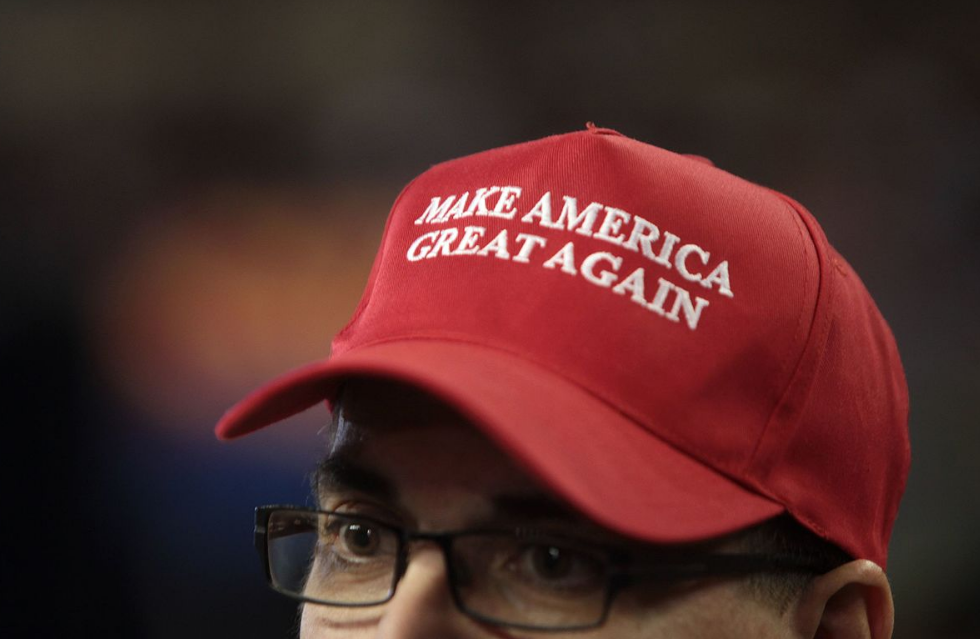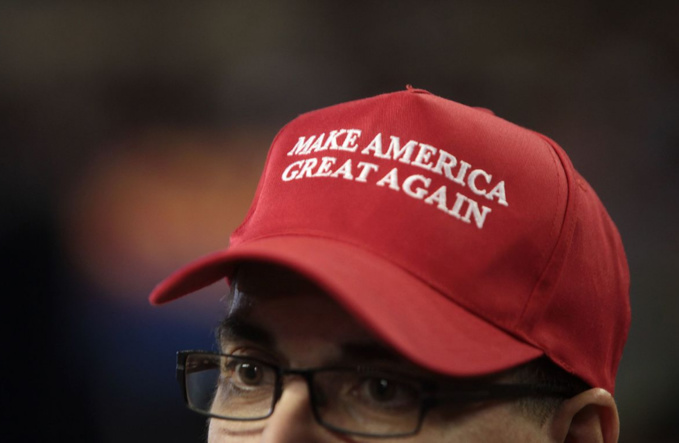Saxo Bank does not exclude that the ECB could make a sharp turn and abandon the policy of ultra-low rates. Due to the difficult situation faced by European banks because of ultra-low rates and the tightening of regulation under the Basel IV rules, the new ECB chairman Christine Lagarde will announce at the beginning of the year that monetary policy has exhausted its capabilities. She will point out that long-term maintenance of negative deposit rates can seriously damage the European banking sector. To force the governments of the Eurozone countries, especially Germany, to switch to fiscal stimulation of the economy, the ECB will deploy its monetary measures, bringing the discount rate to zero, and to even a small plus by the end of the year.
There are no less radical events awaiting Europe in the political sphere. Saxo Bank does not exclude that Hungary, which is already in conflict with the European Commission, leaves the EU. The EU previously launched a procedure against Hungary under Article 7 of the Union Treaty, citing the country's increasingly stringent restrictions on the freedom and independence of the press, the court, science, minorities and human rights defenders. The Hungarian leadership responded that the country is only protecting itself - first of all, its culture - from mass immigration. This situation is unstable, and in 2020, as the procedure for Article 7 is moving slowly through the EU bureaucratic system, it will become even more difficult for the parties to agree. Prime Minister Viktor Orban will openly talk about a “blood brotherhood” with Turkey, as opposed to the rest of Europe, and this sharp change in tone will coincide with minimizing European tranches over the next two years.
Dramatic events can also unfold in Asian markets. The new Asian reserve currency, supported by the Asian Infrastructure Investment Bank (AIIB), will lower the US dollar index by 20%, and bring the dollar down by 30% relative to gold. Due to the deepening trade conflict and vulnerability to threats, the US will turn the dollar (and control over global finances) into a weapon. AIIB will create a new reserve asset called Asian Drawing Right, or ADR, with one ADR equal to two US dollars, which will make it the world's largest currency unit. This step will obviously be aimed at eliminating the US dollar from regional trade. Local economies will conclude a multilateral agreement to transfer all trade in the region to ADR only.
The United States will also face a change in the balance of power. Even though there may be a ceasefire in a trade war between China and the United States, the US economy will begin to choke, and the trade deficit with China will not improve, as China will no longer be able to increase agricultural purchases. Seeing polls that predicted a crushing defeat in the election, US President Donald Trump will lose his temper. His administration, in a recent attempt to tackle the protectionist theme, will introduce a tax under the slogan “America First.” The system of taxation of business in the country will be completely reorganized in favor of domestic production on the principle of supposedly "fair and free trade." All existing duties will be canceled; instead, the government will introduce a flat 25% VAT on all gross revenue in the US market, which is received from production abroad. Trading partners will start ardently protesting these essentially old duties in a new way, but the administration will object that foreign companies can freely transfer production to the United States and avoid tax.
However, Saxo Bank believes that such measures will still not help Donald Trump to be re-elected in 2020.
source: home.saxo
There are no less radical events awaiting Europe in the political sphere. Saxo Bank does not exclude that Hungary, which is already in conflict with the European Commission, leaves the EU. The EU previously launched a procedure against Hungary under Article 7 of the Union Treaty, citing the country's increasingly stringent restrictions on the freedom and independence of the press, the court, science, minorities and human rights defenders. The Hungarian leadership responded that the country is only protecting itself - first of all, its culture - from mass immigration. This situation is unstable, and in 2020, as the procedure for Article 7 is moving slowly through the EU bureaucratic system, it will become even more difficult for the parties to agree. Prime Minister Viktor Orban will openly talk about a “blood brotherhood” with Turkey, as opposed to the rest of Europe, and this sharp change in tone will coincide with minimizing European tranches over the next two years.
Dramatic events can also unfold in Asian markets. The new Asian reserve currency, supported by the Asian Infrastructure Investment Bank (AIIB), will lower the US dollar index by 20%, and bring the dollar down by 30% relative to gold. Due to the deepening trade conflict and vulnerability to threats, the US will turn the dollar (and control over global finances) into a weapon. AIIB will create a new reserve asset called Asian Drawing Right, or ADR, with one ADR equal to two US dollars, which will make it the world's largest currency unit. This step will obviously be aimed at eliminating the US dollar from regional trade. Local economies will conclude a multilateral agreement to transfer all trade in the region to ADR only.
The United States will also face a change in the balance of power. Even though there may be a ceasefire in a trade war between China and the United States, the US economy will begin to choke, and the trade deficit with China will not improve, as China will no longer be able to increase agricultural purchases. Seeing polls that predicted a crushing defeat in the election, US President Donald Trump will lose his temper. His administration, in a recent attempt to tackle the protectionist theme, will introduce a tax under the slogan “America First.” The system of taxation of business in the country will be completely reorganized in favor of domestic production on the principle of supposedly "fair and free trade." All existing duties will be canceled; instead, the government will introduce a flat 25% VAT on all gross revenue in the US market, which is received from production abroad. Trading partners will start ardently protesting these essentially old duties in a new way, but the administration will object that foreign companies can freely transfer production to the United States and avoid tax.
However, Saxo Bank believes that such measures will still not help Donald Trump to be re-elected in 2020.
source: home.saxo



















